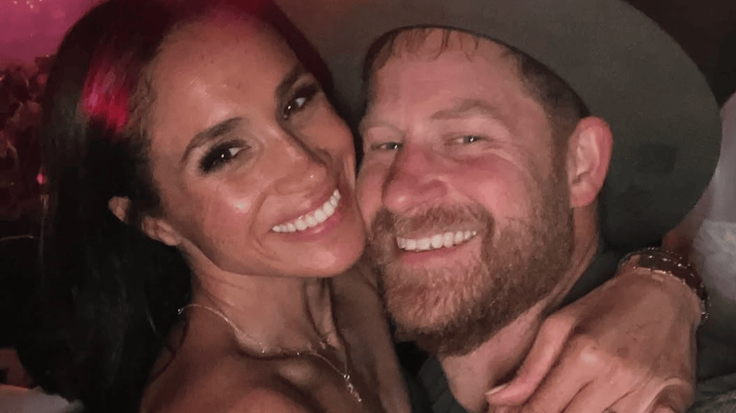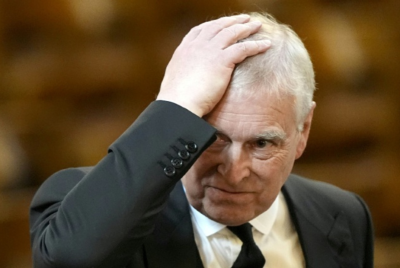Truth Behind Prince Harry 'Punching Andrew's Nose' Over Meghan Markle Remarks Finally Revealed
Biography alleges bloody fight while Harry insists the story is entirely false

A dramatic claim that Prince Harry punched Prince Andrew during a family gathering has ignited a new royal storm, with the Duke of Sussex issuing a firm denial after details appeared in a controversial new biography.
The book, titled Entitled: The Rise and Fall of the House of York, alleges that Harry left his uncle with a bloody nose during an argument in 2013, triggered by remarks Andrew allegedly made behind his back about Meghan Markle. Harry's team has now categorically rejected the story, calling it entirely false.
The Book's Explosive Allegation
According to The Times of India, the biography claims that Andrew insulted Harry privately at a royal party, calling him a coward and making predictions that his future marriage to Meghan would collapse in a month. The author alleges that the confrontation escalated when Harry confronted Andrew about the comments. The book states that Harry called Andrew a coward to his face, leading to a physical altercation that ended with Andrew's nose bloodied.
The claims go further, stating that Andrew dismissed Meghan as an opportunist, branding Harry as 'bonkers' and warning him that marrying her would be the 'biggest mistake' of his life. The book argues this argument marked the beginning of deeper family tensions that later spilled into public view.
Harry Issues Strong Denial and Takes Legal Action
The Duke of Sussex responded quickly once the allegations appeared in the media. In a statement given to The Guardian, a spokesperson for Harry and Meghan said: 'I can confirm Prince Harry and Prince Andrew have never had a physical fight, nor did Prince Andrew ever make the comments he is alleged to have made about the Duchess of Sussex to Prince Harry.'
The couple also sent a legal letter to the Daily Mail, the publication that released the initial excerpt. Their team described the claims as 'gross inaccuracies, damaging and defamatory remarks.' The forcefulness of the response suggests the Sussexes intend to block any narrative that links them to violent confrontations within the royal family.
What the Book Says About Royal Dynamics
The allegations appear within a larger narrative about the York family's decline following Andrew's association with Jeffrey Epstein. The Times of India report notes that Andrew has long denied wrongdoing but settled a civil case with Virginia Giuffre and lost his royal and military titles. The biography uses this context to frame Andrew as a volatile figure within the royal household.
The book also claims Harry and Prince William had a strained relationship with their uncle for years. It includes claims that Andrew made disparaging remarks about Catherine, Princess of Wales, and that William disliked Andrew's ex-wife, Sarah Ferguson. According to the biography, senior royals believed King Charles would eventually remove Andrew and Sarah from the Royal Lodge, and that William would undoubtedly do so once he became king.
How the Story Fits Into Harry's Rift With the Royals
The resurfacing of these allegations arrives at a time when Harry has publicly said he is open to reconciliation with his family. He previously told the BBC he had forgiven them and hoped for better relations in the future. However, stories such as the alleged fight with Andrew complicate those efforts. The situation also recalls the candid details Harry shared in his memoir Spare, where he described deep tensions with his father and brother long before he left for North America.
A Battle Over Royal Truth
The controversy now centres on a straightforward conflict: a biography claiming to reveal a hidden violent encounter and Harry insisting it never happened. With legal action already under way, the dispute highlights how contested royal history has become. For Harry, correcting the record appears essential.
For the book's author, the claim forms part of a wider narrative about royal dysfunction. The public is left between two sharply opposed accounts, each presenting its own version of what happened inside the family's private walls.
© Copyright IBTimes 2025. All rights reserved.



















